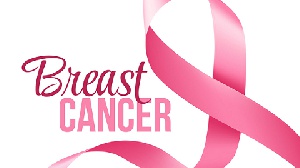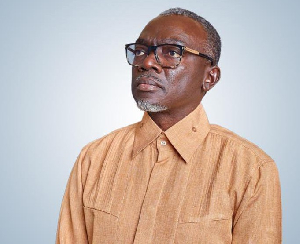Breast cancer knows no bounds, so people should be checked frequently for early detection and treatment, according to Dr. Dorcas Anto, a general practitioner at the Trust Hospital.
The medical practitioner said anyone with breast is prone to breast cancer regardless of their status in society.
Delays in treatment, as she lamented, are harmful and can lead to major medical conditions and, in most cases, death.
Speaking on Frontline on Rainbow Radio 87.5FM, she explained that one of the most difficult aspects of breast cancer treatment and care is treatment delays.
In giving the global statistics, she said about 2.3 million women across the world were diagnosed with breast cancer.
The survival rate for some countries, including the United States, is high, with breast cancer patients undergoing treatment having a 90 percent survival rate for five years, but in Africa, it is below 40 percent, and that is challenging.
"In 2022, there were 2.3 million women diagnosed with breast cancer and 670,000 deaths worldwide. Breast cancer occurs in every country of the world in women at any age after puberty, but the incidence increases in later life.
"Ghana records approximately 4,000 new occurrences of breast cancer each year, and the statistic is increasing, but the bad news is that many patients with the disease present their cases late. Approximately 70% of breast cancer patients show their cases relatively late. Out of the 70%, 50% do not survive. This is because they do not report their condition to the hospital in a timely manner. Some individuals are unaware of their ailment and do not present it on time. Some patients arrive at the hospital when their disease has progressed to the point of no return.
That is why we need to educate the public and encourage them to screen for breast cancer so that if an issue arises, it can be recognised early and treated immediately,” she told host Kwabena Agyapong.
She added that age matters when it comes to breast cancer, with the World Health Organisation pointing out that the greatest risk factor for breast cancer is your age, and most particularly a female, although some men are also prone to breast cancer.
According to the World Health Organisation, breast cancer can develop in women who have no recognised breast cancer risk factor other than gender (female) and age (over 40). There are also others under the ages of forty and thirty who have been diagnosed. “A family history of breast cancer increases the risk of breast cancer, but most women diagnosed with breast cancer have no known family history of the disease,” she explained.
LifeStyle of Friday, 25 October 2024
Source: rainbowradioonline

















